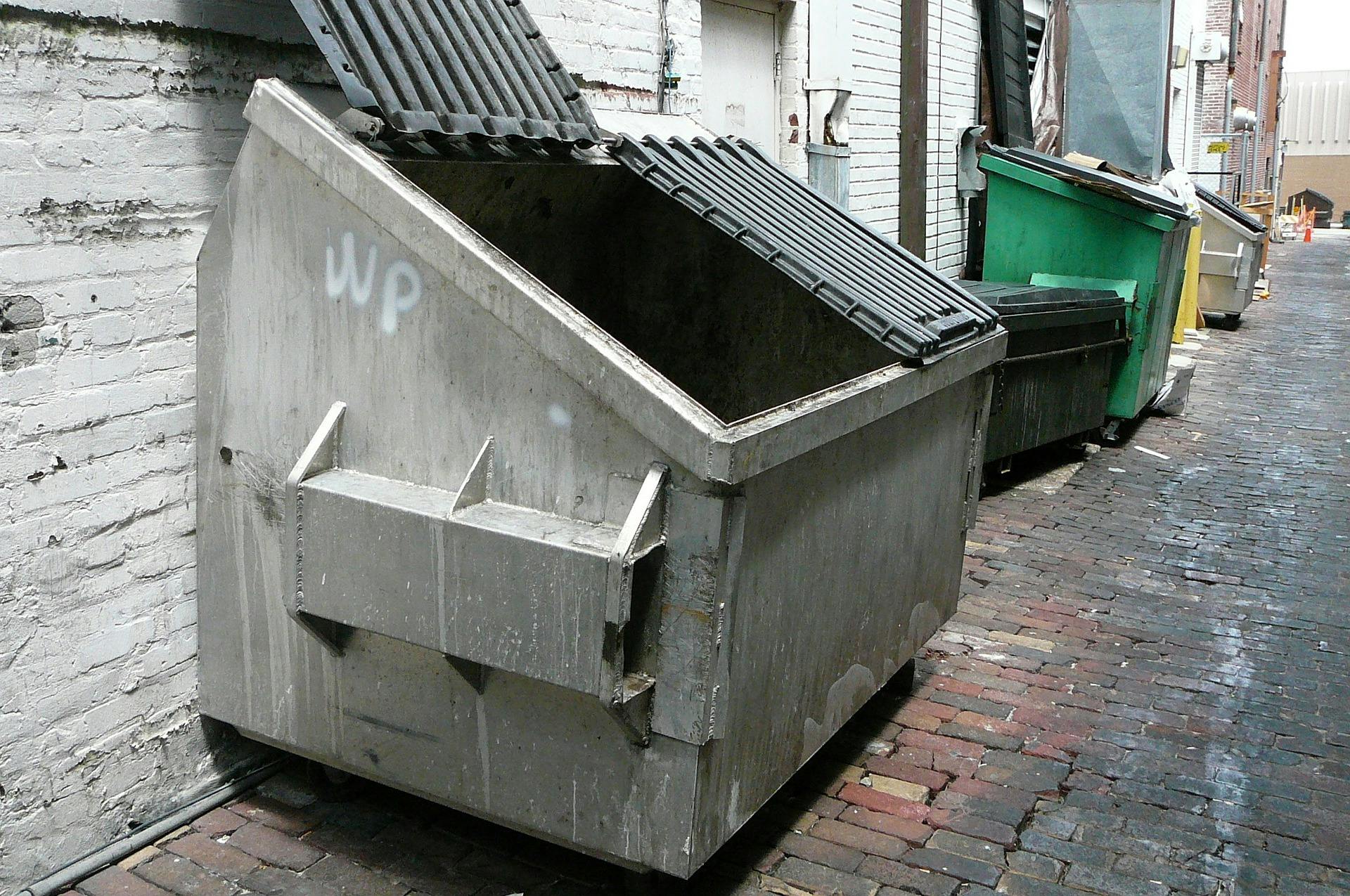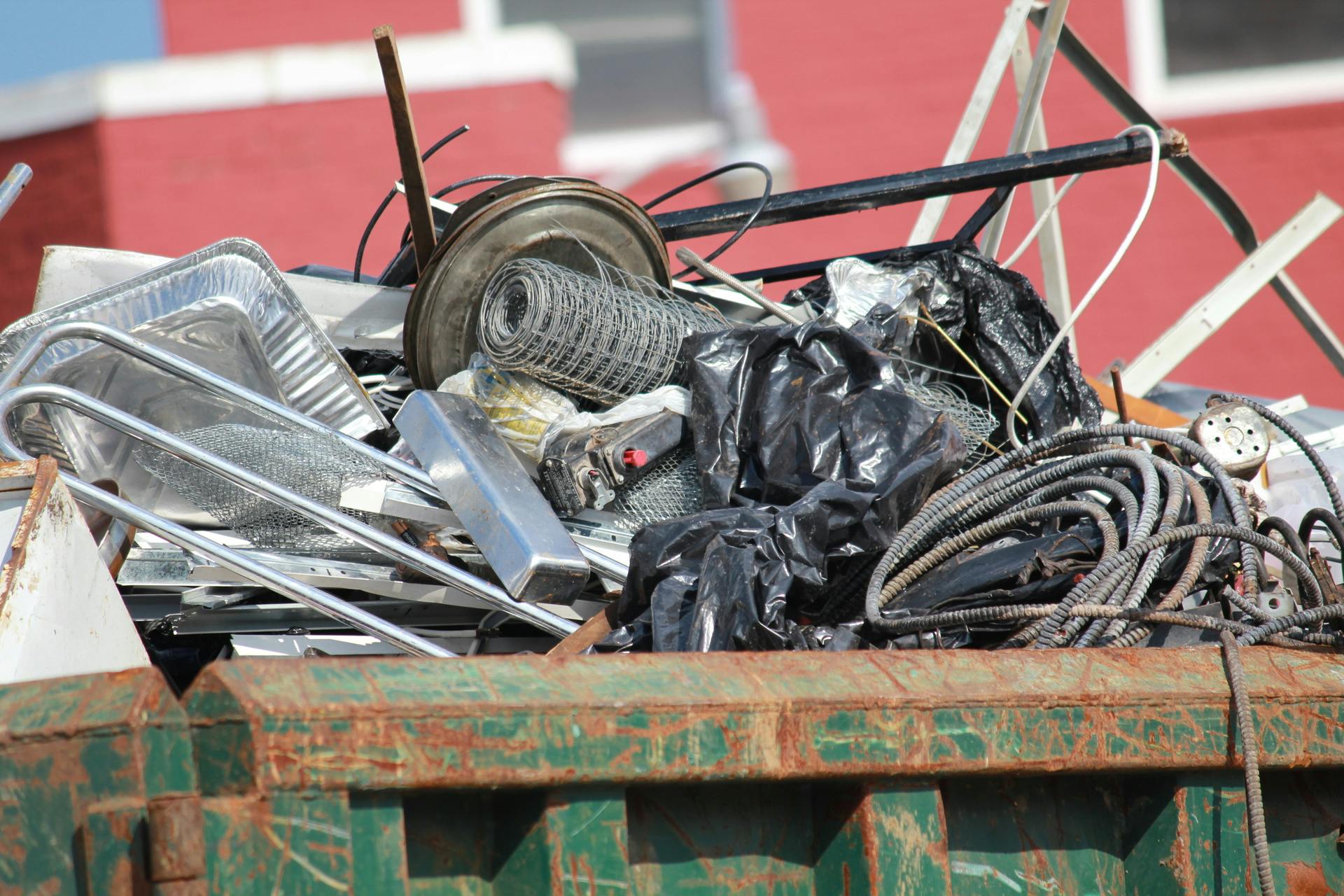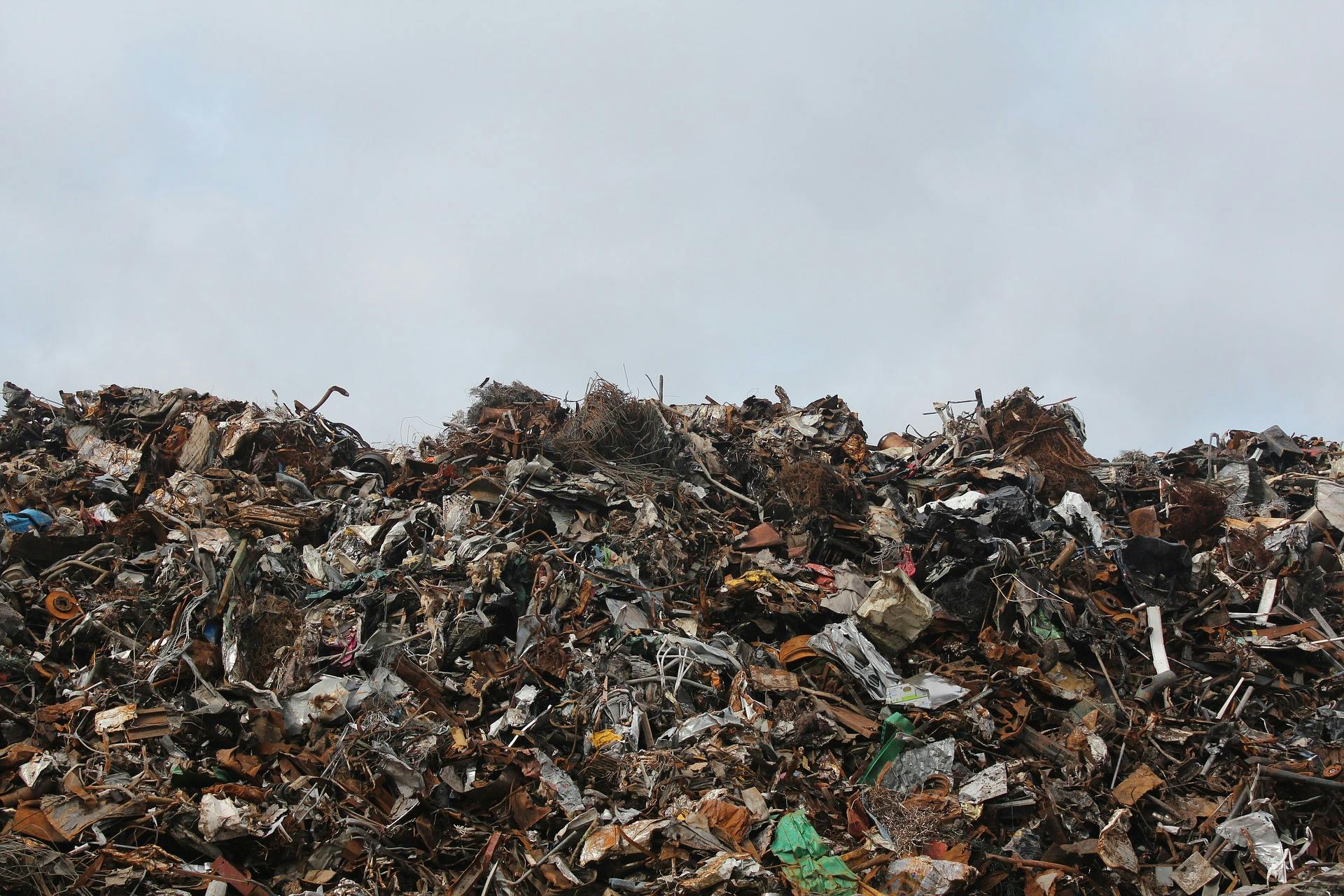When it comes to commercial recycling, there are a few things you should do to ensure your recycling is picked up on time. These tips fall into two main categories: access and loading. You are responsible for maintaining access to your dumpsters and loading them correctly and responsibly. Failure to comply with any of these tips may cause hazardous conditions for the collection crew and result in your recycling not being removed on time.
Access to Dumpsters
Ensuring that your dumpster is easily accessible for our collection crews is the best way to have your recycling picked up on time. If the crew cannot physically get to your dumpster, they will have no way to empty it. Accessibility also includes the proper upkeep of paved areas — heavy vehicles such as our trucks can damage pavement if not upkept.
Dumpster Corrals

Some townships require dumpster corrals to be placed or built around dumpster areas. Check with your local township to determine where your dumpster can be placed and whether or not it requires a corral.
These corrals have two main purposes. First, they keep wildlife and civilians away from recycled materials that could cause them harm. Second, they prevent the dumpsters from being visible from public spaces. However, it’s important for such corrals to have openings large enough for our trucks. If the truck cannot get to your dumpster, it cannot be emptied.
Locked-in Dumpsters
Occasionally, dumpster corrals include locked gates, or dumpsters are located within locked areas of a premises. If this is the case, it is your duty to ensure the proper gates are unlocked when it is time for your recycling to be removed.
Clear Obstructions
In addition to unlocking gates and providing a large enough opening to your corral, all other obstructions must be cleared from the path to your dumpster. Throughout the year, cars and other vehicles are the most common obstruction. Whether these vehicles belong to your business or employees, or they are parked illegally, it is your responsibility to have them moved.
In the winter, ice and snow are also common obstructions. Just as you clear snow and salt the ground around entrances to your business, the same should be the case for the location of your dumpster. Plow services will sometimes pile snow in front of dumpsters as well, preventing access by our crews. Designate a spot for your plow service to pile the snow which does not obstruct access to your dumpster.
Loading Dumpsters
The other half of your responsibility is the proper loading of your dumpster. Dumpsters must be loaded within specifications. These specifications are in place to prevent damage to the dumpsters themselves and our trucks, as well as injury to our crews.
Overloading

Overloading happens when recyclable waste protrudes from the top of the dumpster. This can cause items to fall out of the dumpster, which presents a hazard to both the crew and others nearby. If a dumpster is overloaded, the driver will not accept and haul the load. Additionally, overloading may lead to weight issues.
Weight Limit
Every dumpster is designed to hold a set amount of weight. Going over this limit can be damaging to the dumpster and truck, and present hazards to the crew much like overloading. However, just because a dumpster is not overloaded does not mean it isn’t overweight. Some materials are too heavy to fill a dumpster with, including rocks, steel, and dirt. These materials will cause the dumpster to be overweight before it is filled to capacity.
With that said, weight limit is less of an issue with recycling. Recycling is more likely to be overloaded than overweight — which is where baling comes in handy.
Break Down Items
Large items should be broken down before being placed in dumpsters. This includes both cardboard boxes and wooden structures. Failure to break down these items may lead to overloading of the dumpster. Additionally, paper and plastic products can be baled to save space if your business produces a large amount of these types of recyclable waste.
Hazardous Materials

Hazardous materials should never be placed in recycling dumpsters. They present hazards to everyone involved: you, the truck crew, and other crews down the line such as those working at recycling plants.
Some hazardous materials such as biological waste and poisonous chemicals can make those who interact with them sick. Other hazardous materials, such as batteries, are highly flammable and can cause severe damage and injuries. For more information on what not to put in your dumpster, see this article.
Conclusion
As a commercial customer of Accurate Recycling Services, you are responsible for maintaining access to your dumpster as well as ensuring it is properly loaded. If our collection crews cannot physically get to your dumpster, they will not be able to empty it on schedule. And, if it is not loaded properly, our crews will refuse to empty your dumpster due to the serious risks it may pose to both them and our equipment.
Accurate Recycling
Accurate Recycling has been family owned and operated out of Lansdowne, Pennsylvania for over 75 years. Throughout all that time, we have established ourselves as one of the most trusted recycling services in the region. Contact us today for more information on our commercial recycling services.
